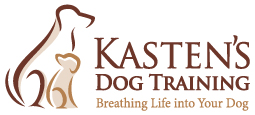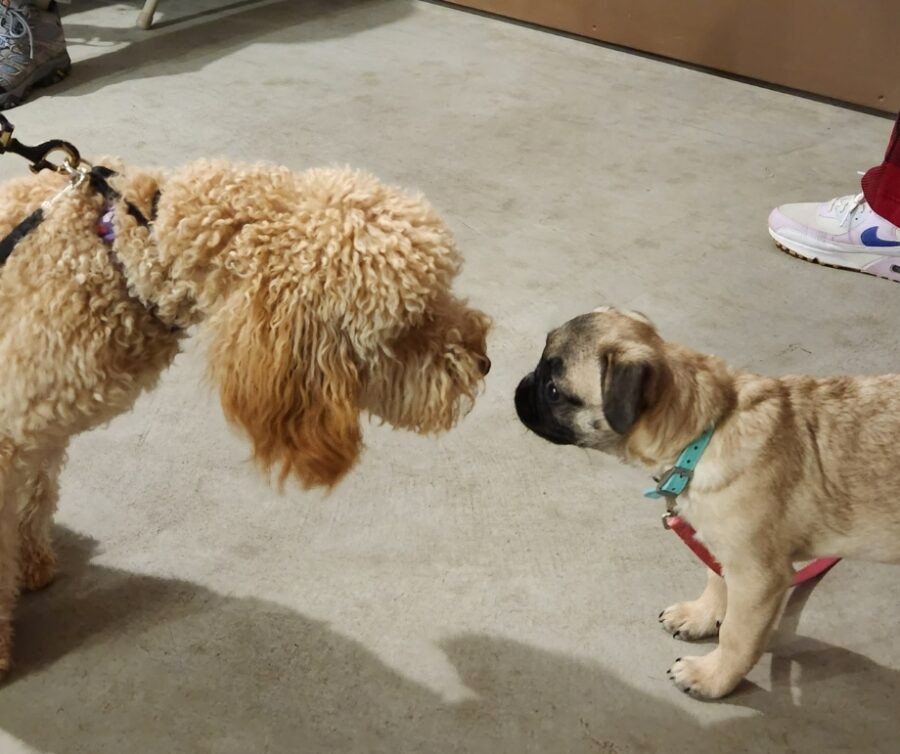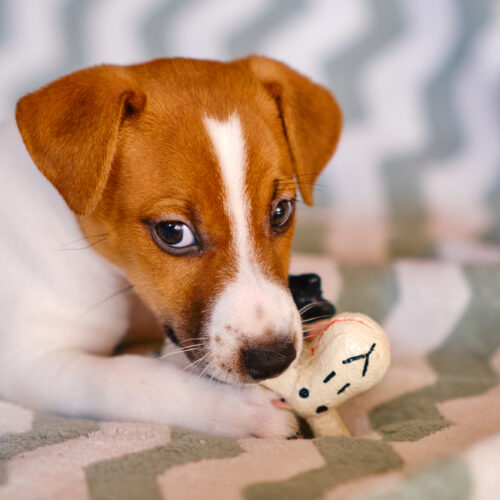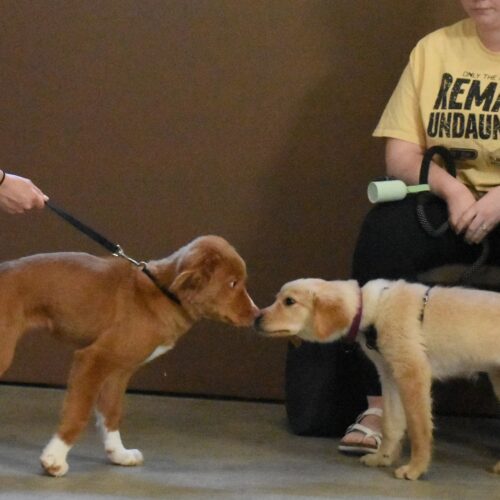A well-socialized puppy grows into a confident and well-mannered dog. The experiences your puppy has in the first few months of life shape how they respond to new people, animals, and environments. Knowing the do’s and don’ts of socializing your puppy makes all the difference in raising a comfortable and well-behaved dog in any situation.
The Do’s of Socializing Your Puppy
Here are some of the do’s of socialization!
Start Early for Lasting Confidence
The best time to introduce your puppy to new experiences is between eight and sixteen weeks old. During this period, they are most receptive to learning and forming positive associations. Early exposure to different environments, sounds, and people helps prevent fear and anxiety later in life. Taking small, positive steps now will set them up for long-term confidence.
Introduce Your Puppy to a Variety of People
Meeting different people helps puppies become comfortable around strangers. Expose them to individuals of different ages, appearances, and voices so they learn that new people are not a threat. Encourage gentle interactions and reward your puppy with treats and praise to reinforce calm, positive behavior.
Create Positive Interactions with Other Dogs
Not all dogs are good socialization partners, so it is important to choose well-mannered, vaccinated dogs for early introductions. Structured puppy classes provide a safe environment for learning proper social behavior while reinforcing basic training skills. Professional trainers can help facilitate these interactions, ensuring they are both positive and productive.
Get Your Puppy Comfortable with Handling
Regularly touching their paws, ears, and mouth will prepare them for grooming and veterinary visits. Making handling a positive experience with praise and treats prevents resistance and ensures they remain relaxed when they need care. Dogs that are comfortable with being handled are easier to groom, examine, and care for as they grow.
Make Every New Experience Fun
Every socialization experience should be enjoyable. Bring treats, toys, and enthusiasm to every outing to create good associations with new places and situations. Keeping sessions short and engaging will help build confidence while strengthening the bond between you and your puppy.
Continue Socialization Beyond Puppyhood
Puppies that stop socializing too early may develop fear or anxiety when encountering something unfamiliar later in life. Regular exposure to new experiences, even as they grow, helps maintain confidence and adaptability. Well-socialized dogs remain comfortable in various situations, from vet visits to busy parks.
The Don’ts of Socializing Your Puppy
Here are some of the dont’s of socialization!
Do Not Overwhelm Your Puppy
Socialization should be a gradual process, not a flood of new experiences. Too many new encounters in a short period can be stressful and cause fear rather than confidence. Let your puppy adjust at their own pace while keeping experiences positive.
Avoid Forcing Interactions
If your puppy is hesitant or scared, pushing them into a situation will only reinforce their fear. Instead, let them observe from a safe distance and approach on their own terms. Creating a sense of security is more important than immediate interaction.
Never Let Negative Experiences Go Unchecked
A single bad encounter with an aggressive dog or overwhelming environment can have lasting effects. If your puppy has a frightening experience, follow it up with several positive ones to rebuild their confidence. Watching their body language will help you recognize when they need reassurance.
Do Not Expose Your Puppy to Unvaccinated or Aggressive Dogs
While socializing with other dogs is important, choosing the right companions is crucial. Unvaccinated dogs pose a health risk, and aggressive dogs can create fear or defensive behavior. Safe, structured interactions are the best way to teach good social skills.
Avoid Stopping Socialization Too Soon
Just because a puppy seems confident now does not mean they will stay that way without continued exposure. If socialization ends too early, they may fear new situations later in life. Keeping experiences fresh and positive ensures they grow into well-adjusted adult dogs.
A Lifetime of Confidence Starts Now
Socializing your puppy the right way creates a confident, friendly, and well-behaved dog in any situation. By introducing new experiences carefully and avoiding common mistakes, you can shape a companion who is ready for the world. At Kasten’s Dog Training, we provide expert guidance and training programs to help you every step of the way.
Contact Us Today!
At Kasten’s Dog Training, we are committed to helping you and your dog build a strong, positive relationship through practical training. Visit our website or contact us today to learn more about our services so we can assist you in reaching your training goals!




